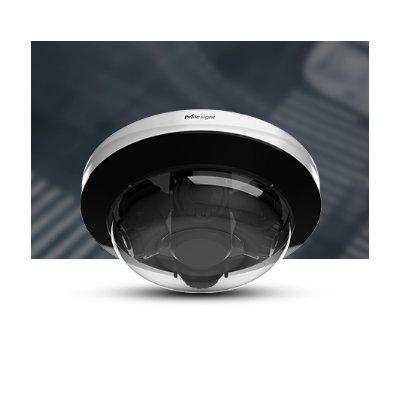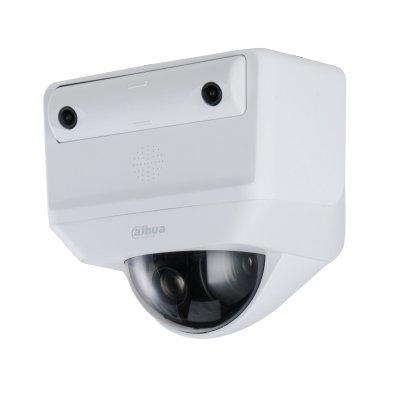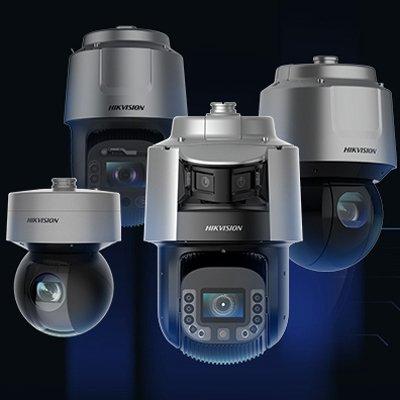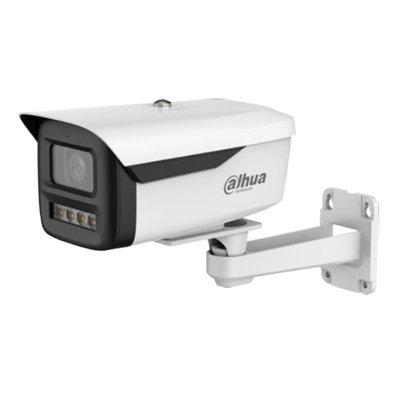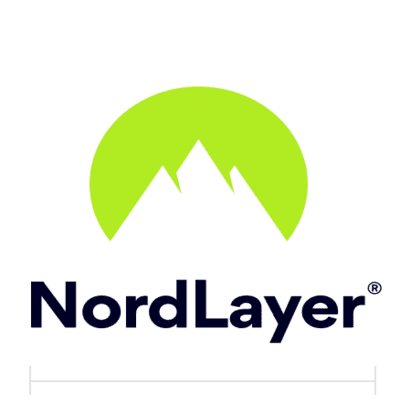Azerbaijan News
The global economy presented some challenges to Tyco Security Products in several ways throughout 2015. Anyone in oil and gas or mining experienced an impact resulting from the market dynamics within those verticals. Also, the significant strength of the US dollar versus other currencies is impacting order value for companies with a global footprint. All in all, though, business remains strong and growing. Measures to strengthen cybersecurity Looking ahead to 2016, cybersec...
For several years now, the video surveillance market has been involved in the “megapixel race,” with manufacturers touting ever-higher pixel counts on their shiny new models. The implication, though not necessarily stated overtly, is that a higher pixel count is equivalent to a better picture. Too simple, says this week’s Expert Panel Roundtable participants, or more to the point: Not true. But where does that leave customers? We asked this week’s Expert Panel Roundtable:...
AMAG Technology provides an overview on its regional development and the current market trends in these regions. The integrated security solution provider speaks about the consolidation of the video market and the growing necessity to develop security solutions that address the needs of their customers. The overall economy positively impacted the North American security market in 2015 as AMAG Technology has experienced unprecedented growth as an organisation. On the international side, there ha...
The siliconisation of surveillance cameras has had a great impact on the security industry, especially this year. The cost of complex megapixel cameras has decreased dramatically as this functionality is now available on chips. The camera industry has gone from innovating on the camera’s performance and functionality to acting more like the PC OEM business, and this siliconisation is driving industry commoditisation. Commoditisation is levelling the competitive landscape as customers are...
The IFSEC Smart Zone will concentrate on smart home and smart buildings IFSEC International is pleased to announce the new Smart Zone exhibition and feature area officially up and running in anticipation of the show which takes place at London’s ExCeL from 21-23 June 2016. Security systems and services are playing increasingly vital roles in building automation which makes IFSEC a strategically significant platform to present current technologies and research to the mar...
We close a historic year for the video surveillance industry: HD security cameras dominate the market for the first time, while overall camera sales are growing even stronger than ever, as security customers are accelerating replacements, finally able to get HD CCTV. As of 2016, “4K” replaces “HD” as our industry’s code word for highest-resolution video. Trade show demos of 4K cameras are as common now as HD camera demos were in 2008. 4K technica...
For many years, the physical security industry seemed at a standstill, maintaining the status quo. In recent years, it’s become clear that change is a constant, effectively altering the landscape of the systems integration industry and all it encompasses. In 2015, we continued to see the proliferation of news about the Internet of Things (loT) and the ways in which connected systems and technologies will affect both the manufacturing and installation communities. As mo...
Overall 2015 has been a year of increased public sector spending (as the UK economy continues to emerge from the recession), which has been highly beneficial to the security industry. This trend has been particularly evident in the healthcare and education sectors, which are key markets for TDSi. Nobody could have predicted the significant number of international security and terrorism threats this year. Undoubtedly this will result in even closer ties among the security industry, police and se...
An increasing trend, and one that will become even more pressing in 2016, is an expanded focus on personnel. This includes the recruitment, selection, training, engagement and recognition of the individuals who are assigned to help create and maintain safer and more secure environments. The tightening labour market has propelled this pressing need to the forefront. With fewer candidates for security officer openings – and openings in most industries – the competi...
SourceSecurity.com’s Expert Panel had a lot to say in 2015 on a variety of topics in our Roundtable discussions. Not surprisingly, the discussion topics that have generated the most interest (in terms of how much visitor traffic they generated) are the same hot topics we hear about every day in the industry. Our very most-clicked-on Roundtable discussion in 2015 was about the impact of video on privacy rights. Other hot topics that made the Top-10 list of Roundtable d...
Video surveillance technology continues to evolve at a strong pace with improvements in resolution, integration, intelligence and bandwidth utilisation – all of which contribute to better overall security and cost-efficiency. As the video surveillance category continues to grow, we spoke with Jeff Whitney, Arecont Vision’s Vice President of Marketing, about some of the factors driving the market. Maturity of integrated systems There continues to be a great deal...
Physical and cyber security convergence, perimeter intrusion detection systems and fibre optic-based sensors were some of the security trends that picked up pace in 2015 and will continue to grow in the coming year as well. The beginning of 2015 started out slowly as the implementation of security projects by a number of organisations was postponed for various reasons. Mid-year picked up momentum, and the year is ending on a strong note. A significant trend was the gradual progression of conve...
2015 was a year of consolidations: The spring of 2015 recorded the highest acquisition rate for a six-month period in 10 years. There were single-digit market growth rates reported in video surveillance due to price erosion affecting revenues. Video solution providers are expanding into access control, and both are slowly but steadily moving into the cloud. Users want the efficiency benefits of converging access control with video verification and unified operation. There are more cloud offering...
The connected workplace, increase in “bring you own device” environments and even the rise in telecommuting have served to blur the lines between an employee’s private life and his employment. The idea of an executive’s obsessive need to check his Blackberry while on vacation has crept into the popular culture and is now a familiar cliché that is as old as, well, Blackberries. The blurring of lines has also created a blurring of expectations. Now employees expect t...
The year 2015 has been notable in several ways. Industry changes include a rise in Chinese manufacturers in the mid- to low-end market, more mobile devices providing video surveillance, and the rise of omnidirectional and higher-megapixel cameras. Unexpectedly, the industry also saw an increase in popularity of do-it-yourself security systems and the speed with which Chinese companies saturated the marketplace with “good enough” products. Omni-directional cameras Oncam welcomes th...
Second guessing is to be expected in the wake of terrorist attacks like the recent tragedy in Paris. After such attacks, security and intelligence professionals are prone to soul-searching – and to speaking out on the public airwaves –to address important questions: Could we have prevented it? What should we have done? There tend to be two categories of second-guessing. The first centres on the idea that the intelligence community should have known about the planned attack and...
Rapid expansion of access control into new roles has been fuelled by panel-less architecture Our world has changed and our industry has changed with it. Data now rules, and the network is king. The Internet of Things has driven customer expectations in how data is received and can be acted upon. Advances in panel-less pure IP technologies have allowed our customers to redefine the applications of access control. These two colliding forces have put us all in the business...
Throughout 2015 the security industry saw the appearance of numerous mobile credential offerings, signalling the “beginning of the end” of card-based identity, and strengthening of mobile offerings in general. Overall, the security industry enjoyed healthy growth throughout 2015, as reflected in the better-than-index performance of most publicly traded security company stocks. Cloud companies, in particular, saw the market turning their way, as a number of security vendors ha...
As 2015 comes to a close, it’s a good time to look back at how our industry has changed this year and what we can expect for 2016. Specifically in the area of video surveillance, the trend toward higher resolutions continued this year. Whereas a few years ago, 720p was the most popular resolution for HD cameras, 1080p has now become the standard choice, and even higher resolutions, such as 4K ultra HD cameras, are seeing increased sales. Integrators are also using a broader mix of cameras...
The security industry continued to grow in 2015, although it was a bit slower than expected. Most noticeably, we saw a lot of M&A activity throughout the industry, including our own new ownership under Canon. Business continues as usual, and we have and will maintain our separate brand. The industry also experienced more price pressure on hardware than in previous years. Axis U.S. expansion plans 2016, IP video, IoT The discussion of price versus value will be a common one in 2016. There...
Automated procedures reduce manual errors & help meet regulatory requirements End user demands are growing exponentially every day. Whether it is managing who has access to buildings or areas and when, recording events on video, managing incidents, meeting compliance requirements or demonstrating proof of compliance, the list goes on and on as to what end users must manage to keep their buildings, assets and people safe. Physical security equipment and an effective securi...
Prevention makes tailgating impossible or extremely difficult due to the full height of an entrance Findings from the 2014 Tailgating Survey by Boon Edam Inc., Lillington, North Carolina, found that more than 85 percent of the 250 integrator and end-user respondents were not tracking the number of tailgating incidents. In the access control industry, tailgating is when an unauthorised person follows an authorised personnel through a controlled entrance. More than 50 percent...
Soft targets are civilian-centric places suchas churches and retail centres, where securityis not as fortified The terror attack on Paris on Nov. 13 lasted just 23 minutes. The bombers and gunmen split up and attacked seven sites: the soccer stadium where it all began, four restaurants, a bar and a concert venue. All told, they killed 130 people and injured 368 in the time it takes for a coffee break. This situation has raised questions about the security management for conce...
Technology can safeguard other motorists, and help highway authorities to communicate with wayward drivers to avoid accidents There has been a spate of accidents worldwide in which cars have been driven either knowingly or unwittingly against the flow of traffic and into oncoming vehicles. Existing and imminent technology from the security sector can prevent such occurrences, alerting responsive drivers to their error and safeguarding other motorists. I write this shortly af...
Speaking at ATM Security 2015 in London, Pat Telford, principal consultant at Microsoft Canada, summarised the software threats to ATMs and the features to combat them when migrating to Windows 10. ATM security is compromised by physical attacks on the cash, physical attacks on the card, replacement of the ATM computer (black box), and malware attack (where normally a person visits the ATM and adds malware). According to Telford, there are certain immutable laws of ATM Sec...
IHS expects third party storage of data from body-worn cameras to become the majority portion of this market The world market for body-worn video surveillance within law enforcement is growing. In 2014 IHS estimated the total world market for body-worn video surveillance equipment and service in law enforcement was worth $60 million. However, interestingly the service portion of the market will grow to become a larger proportion than the hardware market by 2019; this is accord...
Risk, in a security context, is the product of threat, vulnerability, and consequence Security as a discipline has been an important feature of society since cavemen started using the environment around them to protect themselves and their families. As a discipline, security has developed exponentially and that trend is continuing; however, somewhere along the way key elements of physical security design have been forgotten. All too often solutions are deployed in a pre...
Hackers probably take more interest in your home computer and information about your identity stored there As the Internet of Things (IoT) grows, so does the hackable universe. Equipment designers need to start thinking about security in the first steps of manufacturing products, and companies and individuals need to start implementing secure coding practices to avoid hacking incidents. Last July, for instance, two security researchers hacked the computer in a Chrysler Jeep a...
A lower bitrate reduces bandwidth andstorage requirements High definition and megapixel cameras provide more detailed images with more useful information, but this can come at a cost. The volume of data being transported and stored rises significantly. The bandwidth demand that this places on the network and the increase in required storage capacity adds significantly to the total IP system costs. The best place to reduce these costs is at the source – in the camera &nda...
Video cameras are smarter than ever. Video analytics functionality is available inside most cameras now on the market. Smarter cameras enable a system with distributed intelligence and also help to manage bandwidth and storage – on-camera intelligence can determine what video is important enough to tie up network resources and to eventually be retained or viewed. But on-camera video analytics have their limitations, and additional video intelligence at the server can add a new range of fun...
Browse security news
- By event
- Black Hat Middle East 2024
- Intersec 2025
- Data Centre & Cloud Innovation Summit 2025
- Inter Airport Southeast Asia (IASEA) 2025
- Global Table Games and Game Protection Conference 2024
- ISC East 2024
- SIA Honors 2024
- Dahej Industrial Expo 2024
- Suprema Global Partner Program (SGPP) 2024
- AUCSO European Region – Winter Conference 2024
- Inno Rail 2024
- View more
Featured products
Related videos
Enhanced security with S617 video door station
OPTEX REDSCAN mini series protects The Londoner Hotel
Hofbräuhaus in Munich relies on eCLIQ
Palm vein recognition
DownloadThe key to unlocking K12 school safety grants
Download5 surprising findings from OT vulnerability assessments
DownloadHoneywell GARD USB threat report 2024
DownloadSelecting the right network video recorder (NVR) for any vertical market
Download- Azerbaijan Security companies
- Azerbaijan Manufacturers
- Azerbaijan Distributors
- Azerbaijan Resellers / Dealers / Reps
- Azerbaijan Installers
- Azerbaijan Consultants
- Azerbaijan Systems integrators
- Azerbaijan Events / Training / Services
- Azerbaijan Manned guarding
- Azerbaijan Training organisations
- Azerbaijan Associations / regulatory bodies
- Azerbaijan Event organisers
- Azerbaijan Media
- Azerbaijan Recruitment / personnel
- Azerbaijan Services
































